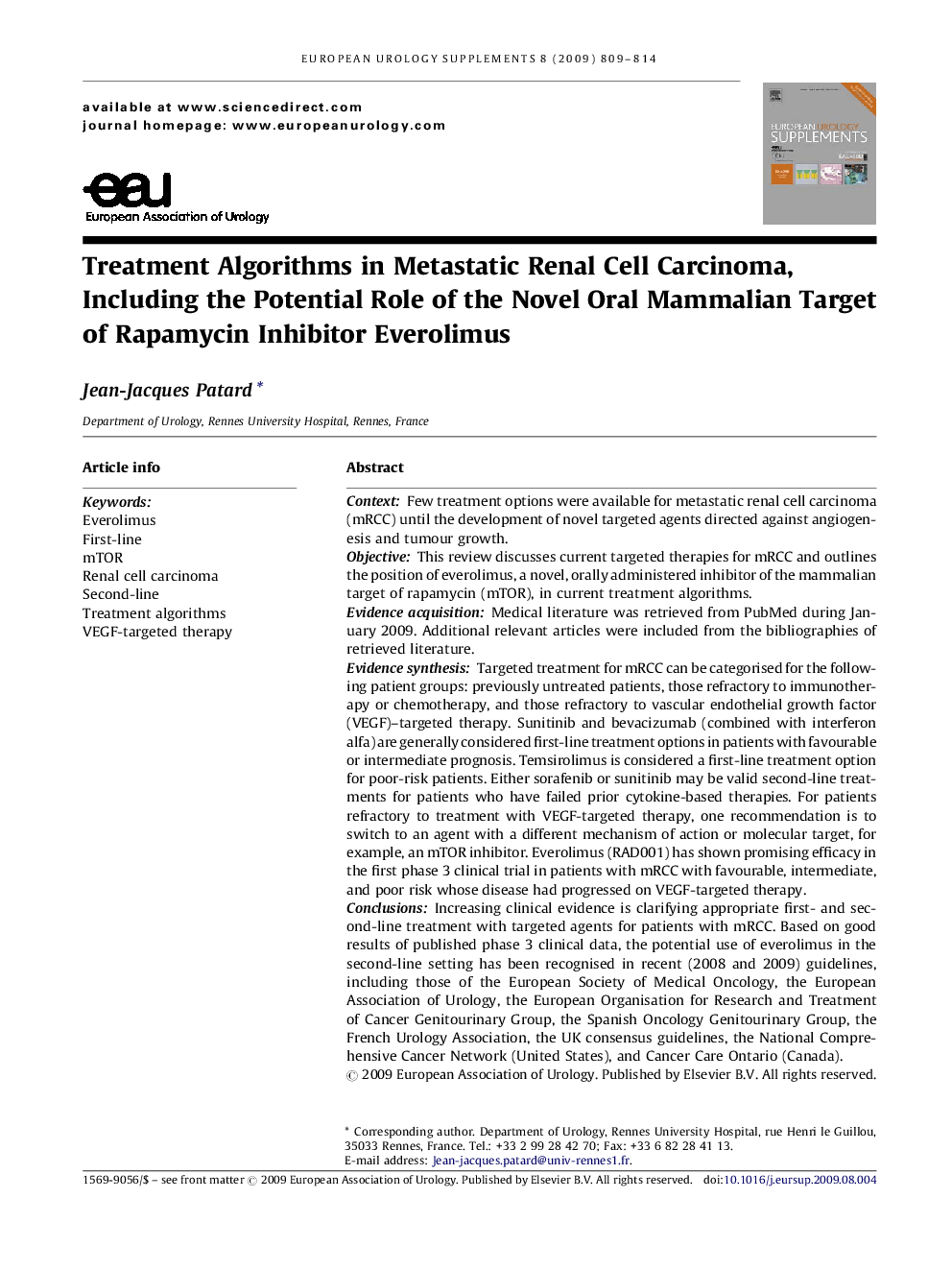| کد مقاله | کد نشریه | سال انتشار | مقاله انگلیسی | نسخه تمام متن |
|---|---|---|---|---|
| 3933631 | 1253357 | 2009 | 6 صفحه PDF | دانلود رایگان |

ContextFew treatment options were available for metastatic renal cell carcinoma (mRCC) until the development of novel targeted agents directed against angiogenesis and tumour growth.ObjectiveThis review discusses current targeted therapies for mRCC and outlines the position of everolimus, a novel, orally administered inhibitor of the mammalian target of rapamycin (mTOR), in current treatment algorithms.Evidence acquisitionMedical literature was retrieved from PubMed during January 2009. Additional relevant articles were included from the bibliographies of retrieved literature.Evidence synthesisTargeted treatment for mRCC can be categorised for the following patient groups: previously untreated patients, those refractory to immunotherapy or chemotherapy, and those refractory to vascular endothelial growth factor (VEGF)–targeted therapy. Sunitinib and bevacizumab (combined with interferon alfa) are generally considered first-line treatment options in patients with favourable or intermediate prognosis. Temsirolimus is considered a first-line treatment option for poor-risk patients. Either sorafenib or sunitinib may be valid second-line treatments for patients who have failed prior cytokine-based therapies. For patients refractory to treatment with VEGF-targeted therapy, one recommendation is to switch to an agent with a different mechanism of action or molecular target, for example, an mTOR inhibitor. Everolimus (RAD001) has shown promising efficacy in the first phase 3 clinical trial in patients with mRCC with favourable, intermediate, and poor risk whose disease had progressed on VEGF-targeted therapy.ConclusionsIncreasing clinical evidence is clarifying appropriate first- and second-line treatment with targeted agents for patients with mRCC. Based on good results of published phase 3 clinical data, the potential use of everolimus in the second-line setting has been recognised in recent (2008 and 2009) guidelines, including those of the European Society of Medical Oncology, the European Association of Urology, the European Organisation for Research and Treatment of Cancer Genitourinary Group, the Spanish Oncology Genitourinary Group, the French Urology Association, the UK consensus guidelines, the National Comprehensive Cancer Network (United States), and Cancer Care Ontario (Canada).
Journal: European Urology Supplements - Volume 8, Issue 10, November 2009, Pages 809–814